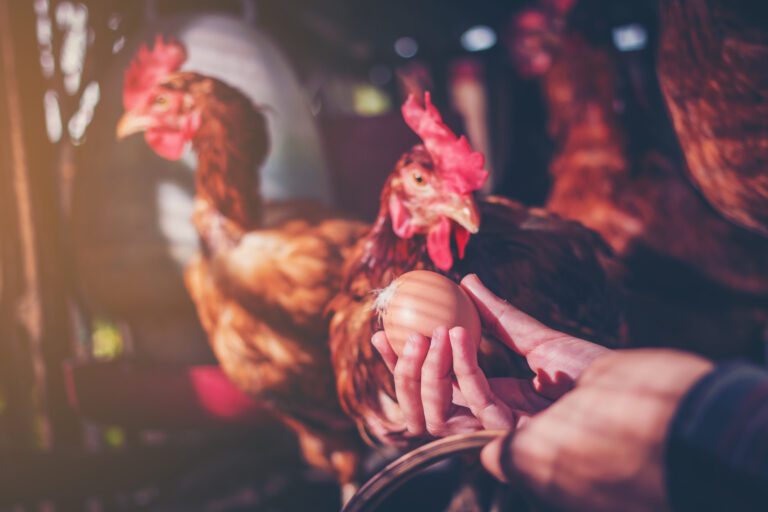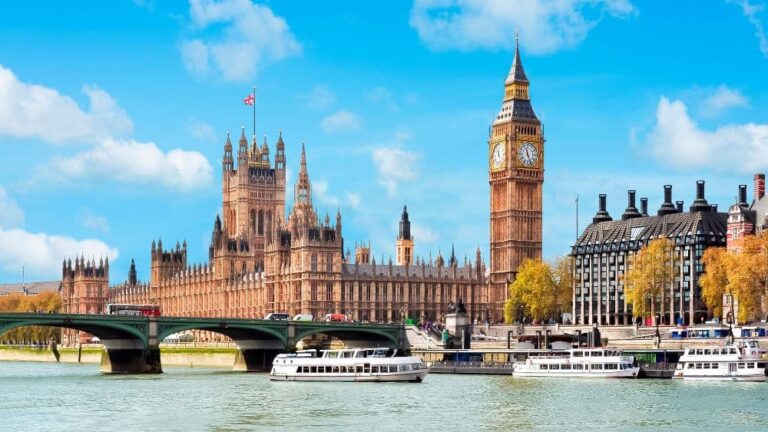
Food for thought
Food, drink and hospitality sector update following the UK Budget and US election
Analysing the recent UK Government Budget was challenging. After navigating the political aspects, it initially seemed like there wasn’t much to discuss. However, there are significant points for the food, drink, and hospitality sectors to consider.
I think the idea behind the Budget was to ease the cost-of-living for those on low incomes and to stimulate longer term economic growth through public sector and infrastructure investments. These will be funded by raising £40bn in taxes – hardly a surprising move for the first Labour Chancellor in 14 years, you might say.
The key questions for businesses in the food, drink and in particular hospitality, sectors are: What condition will my business be in by the time these long-term benefits materialise, and will we be able take advantage of this strategy to drive investment, innovation and growth?
There will be some businesses that have a product range, customer base and target demographic or geographic market that allows them to deal with the challenges in the UK economy (and the way the Budget seeks to address them) and can interact with overseas markets better than others.
While the ‘budget’ and ‘luxury’ ends of the market for products and services have fared reasonably well over the past couple of years, I cannot see how this package of measures helps those in the middle. Those are the businesses that have suffered the most in the cost-of-living crisis. So, volumes may remain depressed for the time being.
Assessing the impact across such a broad range of businesses in food, drink and hospitality is difficult. This is highlighted by the generally positive response from the Food and Drink Federation welcoming the focus on long term growth and investment, as opposed to the less enthusiastic response of UKHospitality. However, I thought I would give it a go…
People costs
The standout news for business, which will impact all elements of the food and drink sector, is the national insurance (NI) increase combined with the rise in national minimum wage (NMW) (which we knew was on its way). This combination of these changes means that there’s not only the direct increase in labour costs to deal with but also the likely inflationary impact they will have.
The employers’ NI increase from 13.8% to 15% was not a huge surprise. However, the lowering of the threshold at which it starts for each employee from £9,100 to £5,000 was a shock. This represents a huge increase in costs for labour-intensive businesses. The Chancellor believes these changes, which come into effect in April 2025, will see £25bn increase in tax take. It remains to be seen what impact will be on businesses hiring new staff, in particular hiring young people.
There was a degree of positivity for the smallest businesses in reliefs provided for employers’ NI. However, with the NMW increases there is no getting away from an inflationary environment and consumer confidence that could hardly be described as buoyant.
No changes have been made to the hospitality sector rules surrounding discretionary gratuities paid to employees via a tronc scheme. November 2024 saw the first tronc distributions being paid in accordance with the new regulations. It will be interesting to see how businesses have adapted to these rules, particularly in the higher tax environment now on the horizon.
Business rates
Manifesto promises to reduce business rates for retail, hospitality and leisure properties look like they are now not expected to come into force until the 2026/27 tax year. This delay will no doubt come as a disappointment to businesses. However, it does seem that the Chancellor is implementing UK Hospitality’s recommendation for a permanently lower level of business rates in the long term. Although businesses will have to survive the interim and as ever the devil will be in the detail.
As a stop gap measure the Chancellor confirmed that business rates relief would be extended, but at a lower rate. From April 2025 the discount applied to relevant businesses in the sector will reduce from 75% to 40% and be capped at £110,000. Clarity will be needed to understand the application of the rules for multi-site operators versus single site operators. Additionally, whether relief is per corporate entity or per operating site. For some context: commercial real estate intelligence firm Altus Group have calculated that restaurants will see their average bill rising from c£5k to £12k while average bill for pubs will increase from c£4k to c£9.5k.
Duty on draught alcohol
There was a 1.7% cut in the duty applied to draught beers, lagers and ciders. This, in theory, should help pub, club and taproom customers as well as independent breweries and cider producers that tend to sell a higher proportion of their products into these venues. However, the impact seems modest and all other taxes on alcohol look set to rise in line with the retail price index (RPI). Where the benefit is felt in the supply chain remains to be seen and the cheering of a ‘penny off a pint’ in the House of Commons felt a bit hollow.
Plastic packaging
Companies are going to be allowed to use mass balance accounting in calculating recycled content for the plastic packaging tax. Jim Bligh, director of corporate affairs and packaging at the Food and Drink Federation, praised this decision. He said: “Food and drink manufacturers want and need a circular economy for packaging recycling, so it’s great news that the government will enable companies to use mass balance accounting.
This important change will open up new markets for advanced recycling in the UK, creating green jobs and investment opportunities, while increasing the amount of recycled content used in food-grade packaging.”
Business planning
So, the Government’s plan is in place and the planning and adaptation for business can start. Cash flow forecasting remains key – especially in hospitality. This Budget should mean that business plans and funding structures are revisited and tough decisions may have to be made:
Staffing levels – since Covid and Brexit businesses have worked hard to get back on track in terms of staffing levels. Presumably some of that will need rolling back with reduced workforces or at least shift patterns changed to manage costs.
How much can automation, AI and technology in general help with this? It’s difficult to say and no two businesses will have the same experience, but we might all need to get used to reduced pub and restaurant opening hours, less staff on hand and maybe restrictions on product range on shop shelves as a result.
Supply chains – choices will need to be made around suppliers – which spells continued uncertainty for all parts of the supply chain. Value for money has always been key but with less money around the definition of value needs looking at.
This may not mean cheaper, of course, but expect plenty of pricing discussions and hard conversations. It will be interesting to see how the retailers and in particular supermarket groups react in terms of how they conduct commercial negotiations and how often they are open to those discussions.
Investment – caution has been the watchword for a while now in respect of investment, despite previous government incentives like capital allowance super deductions.
Surely the additional costs on businesses will delay investment decisions or at least steer them towards greater efficiency. What the intended support for food and drink R&D looks like given the experience of the last few years of HMRC’s approach to R&D tax credits will also be one to watch.
Exports – most of the food production and manufacturing businesses I know have explored export markets as a means of diversification. Is this something to focus on if there are markets where pricing is elastic enough to present a profit margin opportunity?
Over the last few years the United States, for a lot of products, has been that market. However, the recent election result there and the promised tariff increases could make that difficult albeit the early signs are that US trading relationships with Canada and Mexico seem most at risk.
Diversification or consolidation – do businesses invest in developing new products, offerings or locations to spread risk and take advantage of gaps that will emerge in the market? Or do they double-down on those products, divisions and locations that are robust – consolidate, ride it out and move on from there.
Whatever the answer, understanding the true margins made and those that can expect to be made, is going to be vital.
Nuts and bolts actions – are there smaller actions – perhaps not strategic in nature – that can be taken to help?
- Salary sacrifice pensions are an obvious choice and one and I know this has been something my sector colleague and tax director Steve Ashworth has been working on with clients for some time. It will not be the answer for every workforce, but it has its place
- Improvement in systems to reduce waste (both in production and hospitality settings)
- Save energy – energy costs of course being a topic all their own
- Reduce delivery/transport costs (noting fuel duty featured in the budget as well)
Taxation planning and the newly published corporate tax road map needs to be considered – that’s what we are here to do but it would be well worth businesses getting some familiarity with the plans for this Parliament.
Exiting business and incentives for employees
Changes to the capital gains tax (CGT) regime were anticipated with successive Conservative Budgets in recent years where major reform of CGT on business disposals seemed likely. So, Rachel Reeves didn’t exactly pull any rabbits out of any hats on this one. In fact, the increase in the rate of capital gains tax was smaller than many had speculated -with the lower rate increased from 10% to 18% and the higher rate from 20% to 24% (and this applied for all disposals on or after 30 October 2024). So yes, a share sale business exit has probably got more expensive from a tax perspective but the speculation that this could reach income tax levels has been proved wrong.
The difference that remains between the rates of income tax and the rate of capital gains tax means that tax advantaged share schemes – for example the enterprise management incentive (EMI) which I see in a good number of food and drink businesses – will continue to be attractive from a tax perspective.
In the Budget there was also mention of the introduction of reforms to the taxation of employee ownership trusts (which have been an increasingly common route to exit in recent years) and employee benefit trusts. The reforms are designed to prevent opportunities for abuse – so more questions and challenge at HMRC clearance stage of any such transaction can be expected.
The impact of the Budget on inheritance tax (IHT) planning in an agricultural business setting is the topic for another article, but clearly in time there could be impacts for the food and drink sector and UK food security if inter-generational transfers of business ownership become more difficult.
Conclusion
So, challenging times ahead due to economic difficulties in the UK, increases in taxes and uncertainty abroad. However, there is a long-term objective of sustainable growth (hardly a shock headline) underpinned by innovation and efficiency. So, planning remains key if we are to avoid seeing major impacts on business viability, profitability, consumer choice, food security and, of course, business employees, owners and their families… Food for thought.











